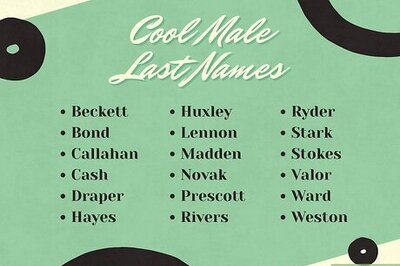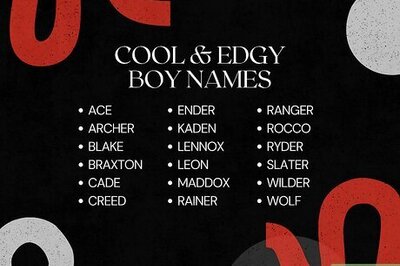
views
San Francisco: Yahoo Inc. has gone through three different CEOs in five years. Whoever takes the helm now will face the same challenge: Solve one of the Internet's most perplexing puzzles.
Why is a company that owns some of the world's most widely used online services unable to gain traction among Web surfers, advertisers and investors? Can the company that rode the Internet boom ever again be where the cool kids go?
Unless Yahoo's next regime can figure it out, the company is in danger of becoming an Internet anachronism that might have to be broken up to be salvaged.
The challenge confounded Silicon Valley veteran Carol Bartz, who spent more than 2 1/2 years retooling Yahoo before being fired over the phone late Tuesday. It also befuddled Yahoo Chairman Roy Bostock, who embraced Bartz as the "exact combination" of experience and savvy the company needed when she was hired in January 2009.
As a stopgap measure, Yahoo appointed its chief financial officer, Tim Morse, to be interim leader until the company's board can hire a permanent replacement. Morse, 42, met with Yahoo's employees at the company's Sunnyvale, California, headquarters on Wednesday.
The board hasn't set a timetable for finding the next CEO. The directors took two months to hire Bartz after co-founder Jerry Yang decided he wanted to end a 1 1/2 year-stint as CEO in 2008.
Yahoo rode the Internet boom of the 1990s and weathered the dot-com bust that followed. In the past decade, says Forrester Research analyst Shar VanBoskirk, the company has spent too much time clinging to its early success in the 1990s, instead of adapting to the trends that have reshaped the Internet.
Two companies that helped drive the changes, Internet search leader Google Inc. and social network Facebook, are now the places where the cool kids hang out and, more importantly to investors, where advertisers increasingly spend their money.
"Yahoo has become a business stuck in its glory days," VanBoskirk says. "They became so focused on what they used to be that they can't seem to focus on what they should become. They just keep refining all the stuff that they have been doing since the 1990s."
Those legacy services can still draw a crowd. Yahoo's email as well as sections devoted to general news, sports, finance and entertainment attract the most online US traffic in each of their categories, according to the most recent data from the research firm comScore Inc.
But the people using those services aren't sticking around as long as they once did, a pattern that has caused advertisers to seek marketing alternatives. That in turn has caused Yahoo's revenue to sag even as the overall Internet ad market has been growing at a rate of more than 20 percent annually.
The net result: Many investors have concluded Yahoo's stock is no longer worth owning - even though the company's brand remains among the best known in the world.
Between the time Bartz arrived and left, Yahoo's stock price gained just 81 cents while Google's shares surged by more than $200. Over the same period, the average time US consumers spent on Yahoo's website each month fell 33 per cent while the time spent on Facebook more than doubled, according to comScore.
Yahoo fell so far behind Google in search-driven advertising, the Internet's most lucrative market, that Bartz joined forces with Microsoft to save money and free up engineers to work on other projects.
That partnership, which calls on Yahoo to rely on Microsoft's search technology, was introduced late last year and hasn't been generating as much revenue as the companies hoped.
Even more troubling: Yahoo has been weakening in its stronghold - the visual marketing campaigns known as "display advertising." Yahoo's website had been considered the best spot for display advertising for the past decade, but no more.
By the end of this year, Facebook is expected to hold a nearly 18 per cent share of the Internet display market in the US, followed by Yahoo at 13 per cent and Google at 9 per cent, according to the research firm eMarketer Inc.
Two years ago, Yahoo commanded a 16 per cent of the display ad market with Facebook at 7 per cent and Google at less than 5 per cent.
Bartz, 63, tried to revive Yahoo by cutting costs, an effort that included shutting down or selling some services that had become a drain on the company's resources.
It wasn't enough to rid Yahoo of a paralyzing identity crisis, according to analysts.
"We think the challenges ... are likely beyond any one person's ability to perform some magic and reinvigorate growth in the company," Wedge Partners analyst Martin Pyykkonen wrote in a Wednesday research note.
Pyykkonen says Yahoo's next move most likely will be to sell all or part of its stakes in two Asian investments, Yahoo Japan and the Alibaba Group.
Neither Bartz nor Morse was convinced Yahoo would be better off if it sold those holdings. The board says it is undergoing a "comprehensive strategic review," but hasn't shared any details about what's under consideration.
The company remains in such disarray after years of recurring reorganization that VanBoskirk is convinced an opportunistic bidder will emerge to take over Yahoo and then sell its services in pieces. Speculation that buyout firms would mount a takeover attempt surfaced several times while Bartz was CEO, too.
"Yahoo hasn't been able to demonstrate that it can create any value from the sum of all its parts," VanBoskirk says.
Investors, for now, are just pleased the Bartz era is over. The company's shares rose 70 cents, or more than 5 per cent, to close at $13.61 Wednesday.


















Comments
0 comment